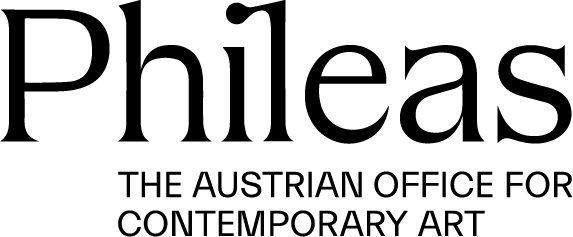Heimo Zobernig
All the World’s Futures
56th Biennale di Venezia, Italy
9 May – 22 November 2015
During the summer and autumn of 2015, the work of Heimo Zobernig was presented at the Austrian Pavilion for the 56th Venice Biennale. The exhibition was co-produced by Phileas.
As the basis for his project, Zobernig used the Austrian Pavilion itself, which was built in 1934 according to plans by Josef Hoffmann and Robert Kramreiter. By lowering the ceiling, laying a new floor and opening the walls towards the rear garden, he levelled all existing height differences and erased the modern characteristics of the building’s architecture. It is an intervention, both site-specific and yet at the same time an autonomous object, which was shown later in a different context. Thus, Venice is only the starting point for an artwork that would travel further, commenting on its previous, current and future spaces and contexts.
Heimo Zobernig’s work is characterized not only by its high-level precision in both form and content, but also by its success in involving the viewer. With a wide-ranging practice straddling drawing and painting, installation and sculpture to video and site-specific interventions of a practical nature, his artistic approach continuously revolves around the basic premise of art. Yet the playful invariably accompanies the critical when negotiating issues in painting and sculpture, or, in the case of the project in Venice, concrete architectural intervention and installation.
Zobernig exposes the mechanisms of art, addressing hierarchies and examining concepts both for their concrete and metaphorical meanings. Through his professorship at the Academy of Fine Arts in Vienna, where he has taught for the last fourteen years, Zobernig continues to influence subsequent generations. His exhibition history includes participations in major events such as La Biennale di Venezia (1988 & 2001), Documenta in Kassel (1992 & 1997), and Skulptur Projekte Münster (1997), in addition to major solo exhibitions in renowned institutions such as the Palacio de Velázquez/Museo Reina Sofía in Madrid (2012), Kunsthaus Graz (2013), Mudam Luxembourg, and the Kestnergesellschaft in Hannover (both 2014).







